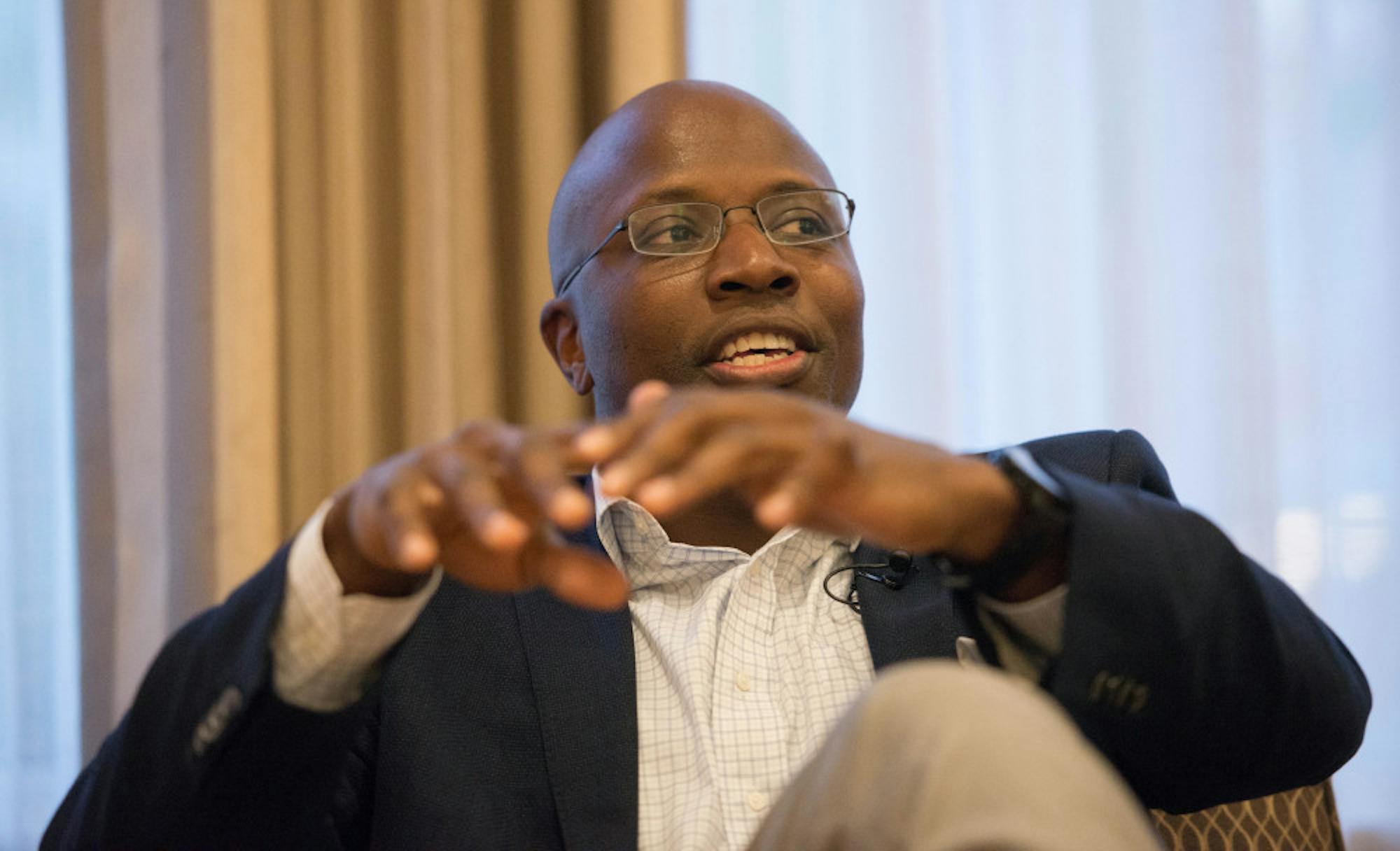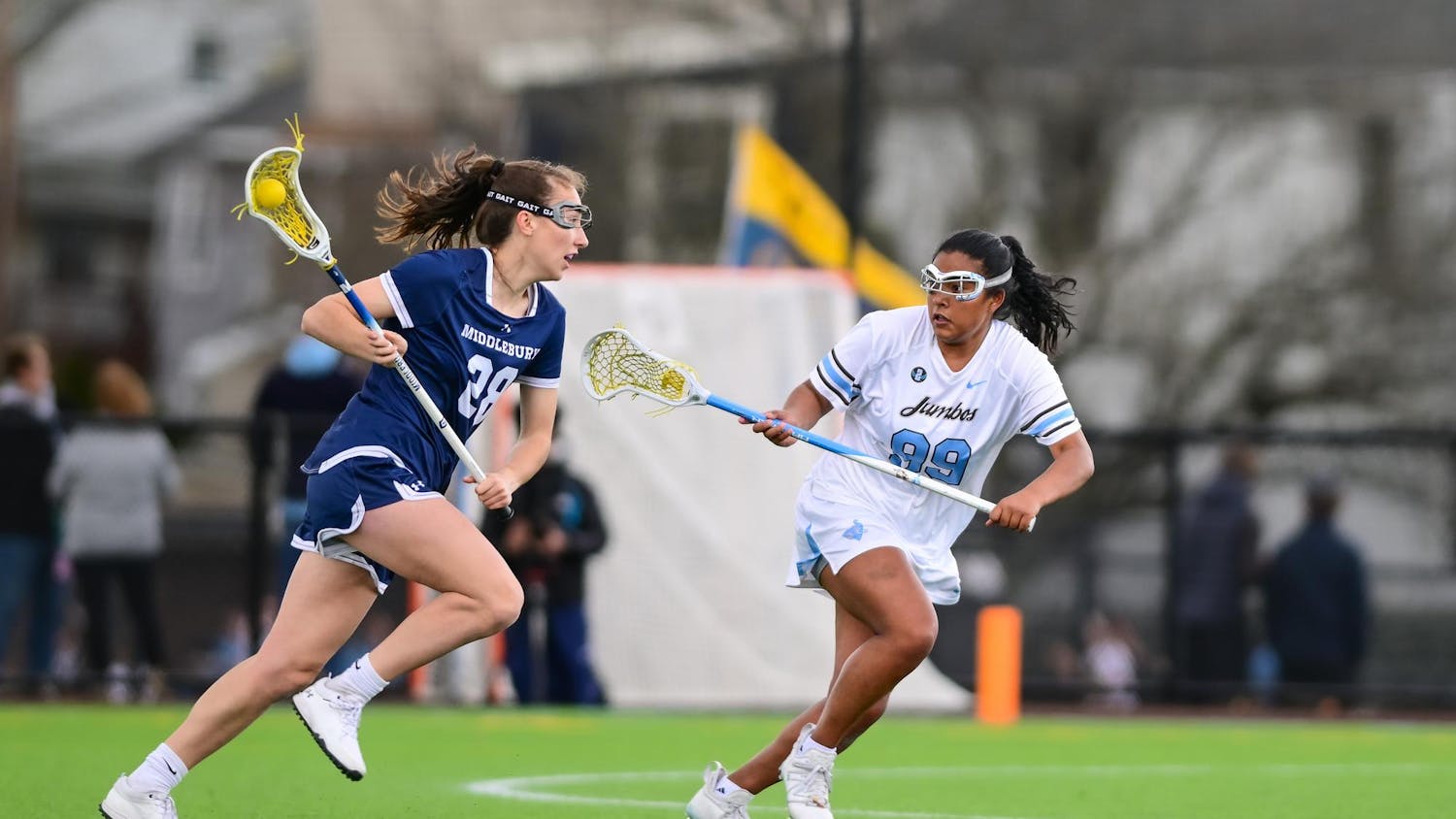"Who's tougher to work for: President Obama or Coach K?" Drew Madsen, junior forward for the Tufts men's basketball team, asked Reggie Love.
Love was at Tufts last week as part of the Tisch College Distinguished Speaker Series, an event co-sponsored by the Department of Athletics and the Political Science Department. A private roundtable discussion held prior to the event gave several student-athletes the opportunity to pose questions to Love. Love not only served as President Barack Obama's personal aide, or "body man," until 2011, but also has a resume that includes a 2001 NCAA national basketball championship with Duke and short stints in the NFL.
"Let me just tell you that a Bill Parcells training camp is the hardest thing I've ever done," Love said in response to Madsen's question, which referenced Mike Krzyzewski, head coach of the Duke men's basketball team. "Working for the leader of the free world is a tough job, [but] physically it's not that challenging. Playing at Duke is not like playing for any type of democratic process. It's a dictatorship."
Love graduated from Duke as a political science and public policy major but had come into college as a hopeful pre-med student. After failing to be inspired by what he was learning in introduction to chemistry, Love went to his student advisor with the intention of switching majors.
"I asked what can I major in [where] I [could] take the least amount of classes, [and] they said political science, public policy and sociology," Love said.
Love's trajectory into the White House followed a similarly unplanned route. Post-graduation, he had been idling at his parents' North Carolina home, trying to make a professional football roster when he gradually realized that his hopes of becoming a professional athlete were dwindling. Shortly after, Love sent his resume to a friend at Capitol Hill and eventually got a mail room job in Obama's Senate office.
"I took the chance to work for an African-American senator," Love said, noting that African-Americans, already a minority in the United States, make up an even smaller percentage of the Senate.
Love credits his relatively easy transition from sport to politics to two people: Krzyzewski and his mother.
"[One of Coach K's] guys would literally go to every player, every class and make sure that guys showed up for the class," Love said. "So everyone went to class ... And my mum knew that I wanted to be a pro athlete, but she always said...'You're not going to play.'"
When asked about the NCAA and what more the organization should be doing for its student-athletes, Love shared a personal story about his college roommate -- who suffered his fourth concussion in their sophomore year. In the summer of 2015, after 10 years of prescription drug addiction to soothe the pain, his family finally sent him to rehab, according to Love. Love's college roommate passed away this summer, making the ongoing NCAA controversy one of personal nature to the former college athlete.
Love also reiterated how Duke offered the best opportunities for him to refine his leadership skills. Walking on to the Duke basketball team his sophomore year of college, Love became the first walk-on in history to captain the team. But while the basketball team was winning a national championship, Love was losing the first 22 games of his college career as a wide receiver on the Duke football team.
"When you're losing every game, it's hard to motivate yourself and your teammates, [so] we used to do all these things to fool ourselves," Love said. "[We would] get together for dinner on Sunday nights, and the upperclassmen would pay, or [we would] go to someone's hometown -- those guys that [lived] close to the university. It's really easy to work hard when you're winning, [but] it's amazing to be able to get people to work hard when it seems like everything is stacked against them. It's like the campaign in 2008."
The rest of the afternoon saw Love interweave sports analogies and political stories.
When asked what a student-athlete should do following his collegiate career, Love encouraged the panelist to take advantage of his youth -- the time in his life where he had the fewest commitments -- to take risks and be courageous. He explained the tradeoff between certainty and growth by neatly inserting a line from every coach's book of inspirational speeches.
"I would rather have you make the wrong play at 100 percent, than the perfect play at 50 percent," Love said. "The most valuable thing I learned as the president's right-hand man is how much I didn't know. In school, I tended to pivot to what I was good at, with what I could do competitively. But when you're working for the guy running for president, you have no control over that."
Toward the end of the roundtable discussion, the most important question of the day was posed.
"So what type of basketball player is the president?" Nicole Brooks, a senior history major and guard for the women's basketball team asked. "I really just want to know if the president can ball."
"Well he's a lefty [who] likes to go right," Love said. "There's this play [where]...I'm going for a fade-away jumper, shoes unlaced, and he blocks my shot. That picture was up in the White House for 18 months. Every other photo was changed every few months, except for that one. When I asked someone about it, they told me the president said not to change it."
Reggie Love speaks to student-athletes at roundtable discussion

Reggie Love, former NFL player and special aide to Barack Obama, speaks at a "fireside chat" with Alan D. Solomont, director of Tisch College, as part of the Tisch College Distinguished Speakers Series on Wednesday, Sept. 30.





